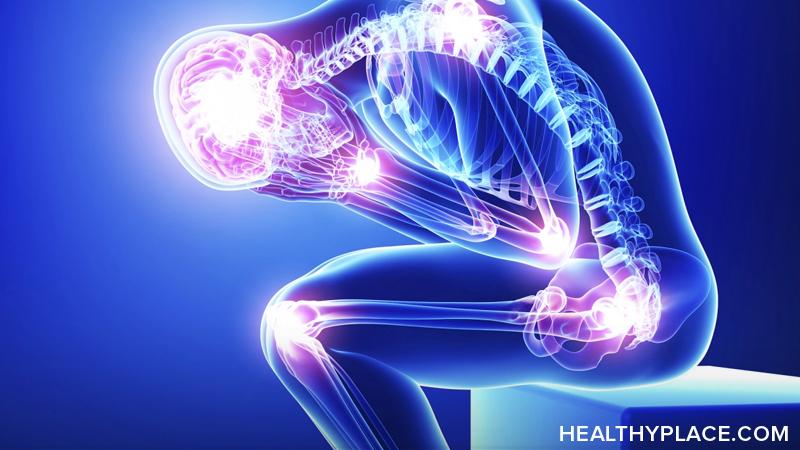The Gift Of Pain
A lot of people come into my office, thinking that pain is the problem. The first thing they request is to help them get rid of the pain.
But pain, as hard as it may seem, is not what I see as the main problem. Pain is our body’s way of telling us that something is wrong. It causes such discomfort that it pushes people to make a change or find a solution. Understandably, pain is most people’s priority. Pain is a GREAT motivator. But we have to address the dysfunction in the body that is creating the pain.
If you go to the doctor and get medication to help stop the pain, all that does is cover up the problem and leave the dysfunction. When pain is covered up, all it does is allow the body to keep breaking down further. If we catch the pain messages from the body early and listen to them, we can do productive things to make the body function better. Pain is our body’s way of telling us, “Hey! You’re working too hard!” or “Hey! You’re eating foods that cause inflammation!” If you ignore these messages and pop a pill, then the underlying causes will get worse until you need some drastic intervention like surgery or you develop severe disease.

Any Type Of Pain Is Not Normal!
I often hear from patients who had initially come into my office with intense, 9-out-of-10 pain, that they are feeling so much better, and now it “only hurts like normal.” Have you ever experienced pain for such a long time that your body just got used to a certain level of pain or discomfort? Any type of pain is not normal! Pain is your body trying to tell you that something is not right.
Our body has a consistent way of communicating with us. It starts by giving us subtle clues like maybe a headache or an upset stomach. Small, uncomfortable things start to happen to warn you that something in your environment does not agree with your body. Our typical response to our body when this happens is to ignore it. Because guess what? We are really busy, and we have kids to take care of a job to do, and all these responsibilities! So we tell our body to be quiet and stop bothering us. In the beginning, our body typically listens and uses its stress mechanisms to cover up the problem.
What Happens When You Ignore Pain?
What happens next is our body starts talking a little louder. “HEY, you! I’ve got a problem, and you need to do something about it.” A message from your body can show up in many different forms: maybe instead of a headache, it turns into a migraine, or instead of a stomach ache, it turns into more digestive discomfort. Maybe other things start to go wrong: you break out in a rash, you get sick, your joints begin to ache. Whatever it may be, your pain level has now increased. When this happens, we start to talk back to our body just as loud. We tell it to TOUGHEN UP because we have a life to live! We can’t be dealing with these problems right now. There is too much other crap going on! And our body listens to us.
Then our body starts yelling, “HEY, YOU! I HAVE A SERIOUS PROBLEM!” Maybe your migraine turns into chronic migraines, or your stomach ache turns into chronic constipation or diarrhea. Your body has all these fun ways of causing pain and discomfort to try to get your attention. At this point, we bring out the big guns. We go to the kitchen and grab the NSAIDS like Tylenol and Acetaminophen to help with the pain. Maybe we go to the medical doctors and get some other pain pills that are stronger. At this point, we are telling our body, “I don’t even care about you.”
Finally, as a last resort, our body pulls out a 2×4, hits us over the head, and takes us down! At this point, we are no longer functional. We can’t work, socialize, get out of bed, or go to the bathroom, and we are in excruciating pain. That is when you will finally come in and see me and say, “I don’t know what happened, but all of a sudden I picked something up off the ground or ate this one thing I always eat or did some other mediocre thing, and BAM! Now I’m in all this pain.”
The Relationship Between Pain And Chronic Illness
Rarely is there one defining moment that people can identify as exactly when it went wrong. If they can, then they likely have an acute problem, and medicine works wonderfully for that. If you can sit there and tell me that you have no idea when exactly it went wrong, or that you’ve just been living with this problem, then let me tell you, my friend: it is a chronic health issue, and that I can help with.
The thing is: your body has been telling you something’s been wrong for a long time and in all different kinds of ways. But we have gotten too good at ignoring our bodies. You only really paid attention when your body finally took you out, and you couldn’t function normally.
Pain is the body’s way to communicate with us in all these subtle, and not so subtle ways. We have to get better at listening to our body instead of telling it to shut up because we are tough. You know the saying, “the straw that broke the camel’s back.” Well, it was a straw. That is often how chronic health problems arise: it was one little thing that finally broke you after months or years of dysfunction.
If you are seeking answers to your physical or emotional pain my vitality restoration program may be the help you are looking for!
Here’s To A Better Life,
Dr. Steve Puckette








